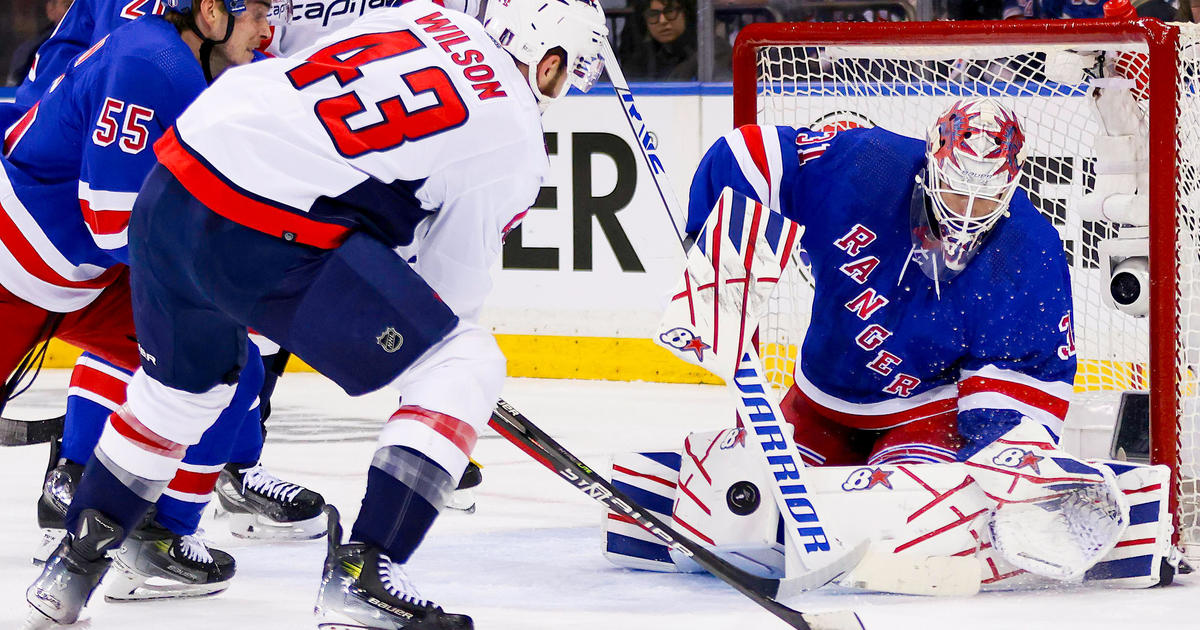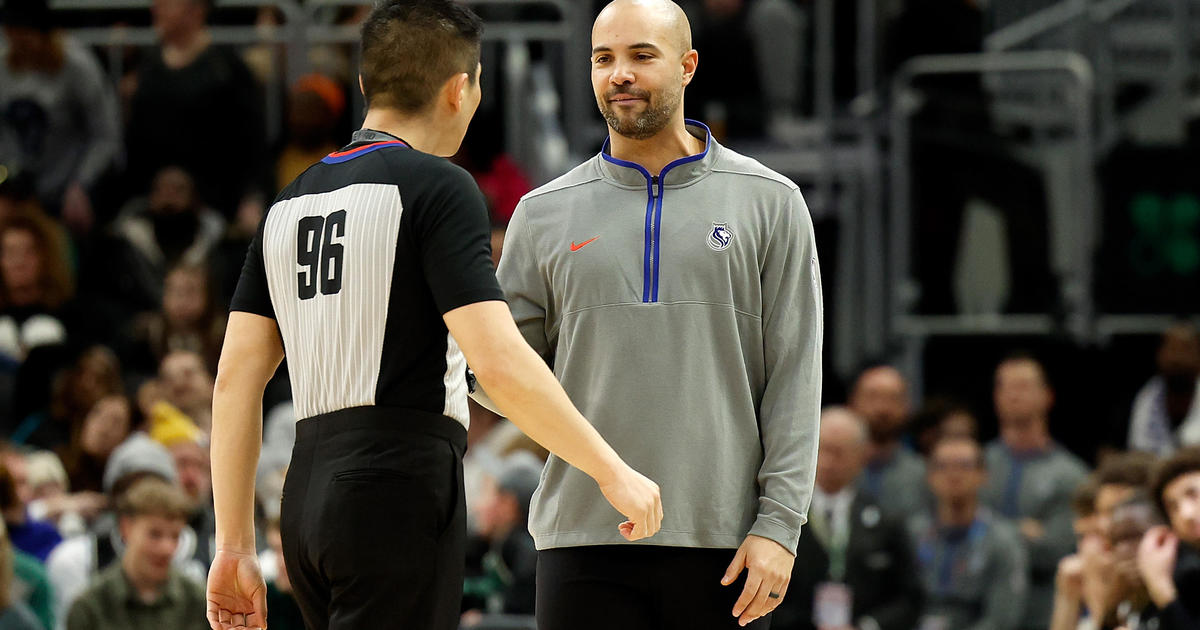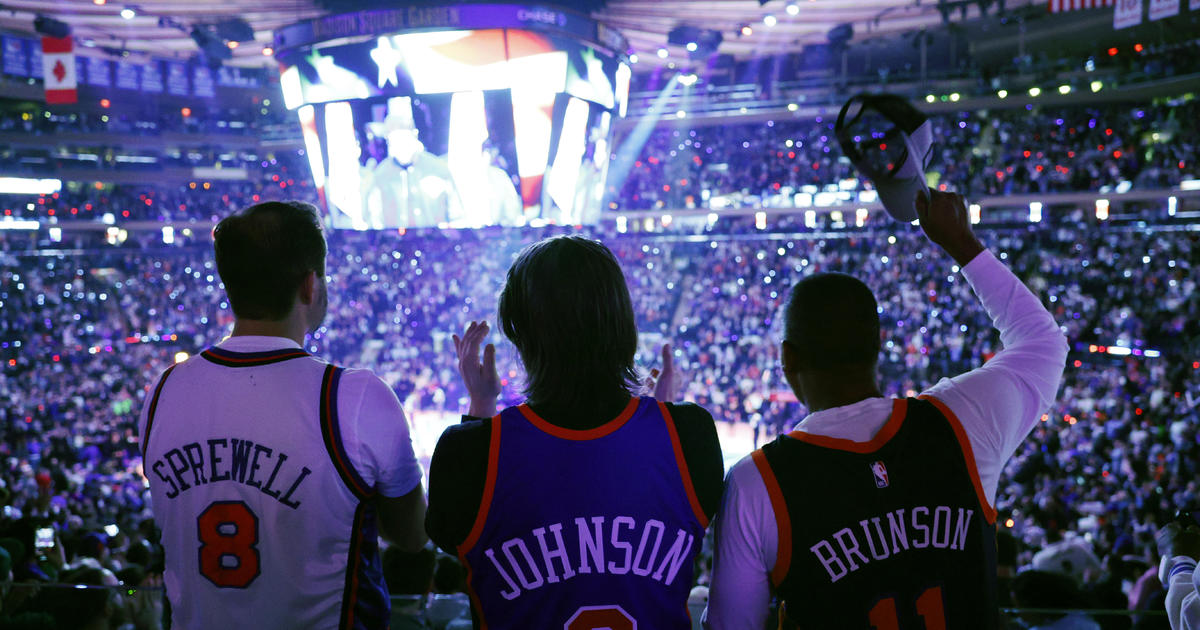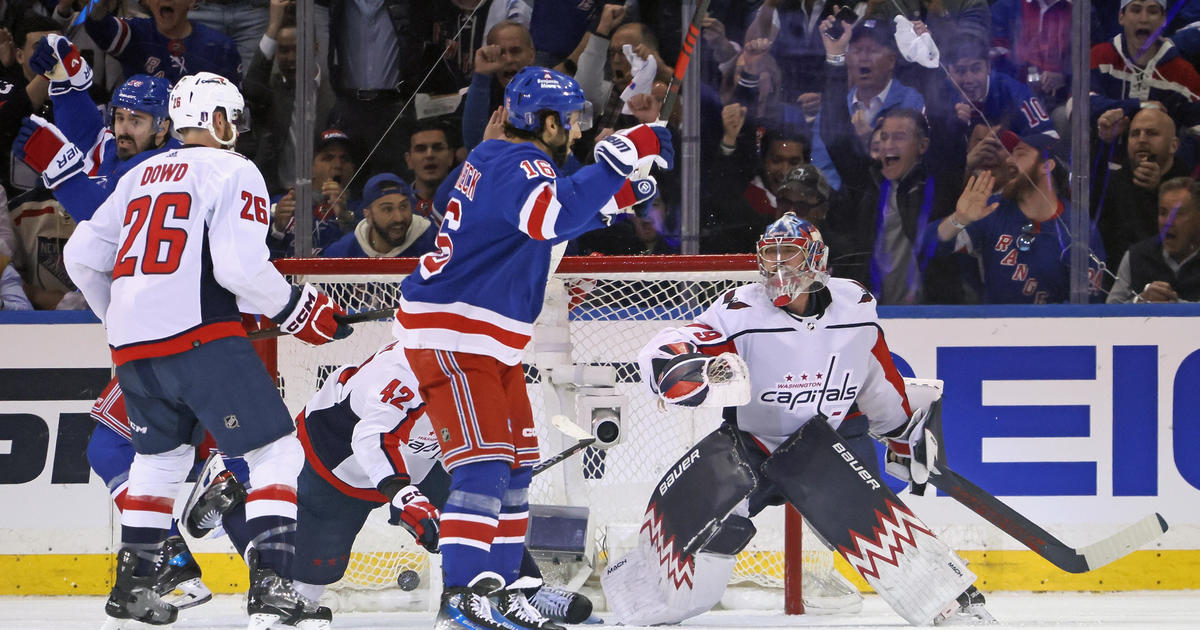Is This Year's NCAA Tournament Really Up For Grabs? It's Time To Find Out
NEW YORK (CBSNewYork/AP) -- What will madness bring this year?
Brad Stevens is amused by all this talk of parity in the NCAA tournament.
The coach who guided little Butler to the national championship game two years in a row wonders why everyone seems to be saying all at once: Hey, there's some pretty good teams beyond the glamour conferences.
Stevens remembers his first basketball job, as Butler's director of basketball operations in 2001, when the Bulldogs easily won their first-round game as a No. 10 seed. They cruised past Wake Forest, an entry from the mighty Atlantic Coast Conference, after leading 43-10 at halftime.
Yep, 43-10!
WEB EXTRA: Rothstein: Thursday's NCAA Tournament Primer; Picks, Upset Alert & More
"People at that time called those upsets," Stevens said Wednesday. "Now they call it parity."
It's time to find out just how evenly matched these teams really are.
The prelims were wrapping up with two more first-round games in Dayton, plus a glimpse of college basketball's future with the official unveiling of the new Big East Conferencelou
But, as everyone knows, the tournament really gets started on Thursday.
Sixty-four teams. Thirty-two contests. All going down in an exhilarating — and, yes, exhausting — two-day mosh pit of hoops.
By the time it's done late Friday, we should have at least some answers to the most pressing questions: Can a 16th-seeded team beat a top-seeded team for the first time? Will the selection committee look smart for inviting so many of the so-called little guys at the expense of more established programs? Will the refs call more fouls than they did during a low-scoring regular season that often resembled wrestling more than basketball?
The only thing we know for sure is there won't be a repeat champion.
Kentucky didn't even get an invite to the 68-team party. Heck, the Wildcats' season is already over, snuffed out by Robert Morris — a school near Pittsburgh, not some guy known as Bob Morris to his friends — in the National Invitation Tournament.
Hmm, maybe that's an indication of what's to come in the NCAAs, after a season in which no team established itself as a clear-cut favorite.
"I think it's been pretty obvious throughout the year there's a lot of parity in basketball," said Saint Louis forward Dwayne Evans, whose fourth-seeded team opens against No. 13 New Mexico State in San Jose, Calif. "Every day you turn on SportsCenter and you see a bunch of upsets. But I think that provides a lot of exciting college basketball. And, as a team, I think we have a legitimate chance here."
WEB EXTRA: Rothstein: 68 Reasons To Be Excited For The NCAA Tournament
Louisville coach Rick Pitino, whose team was seeded first overall after romping into the tournament on a 10-game winning streak, joined the chorus of those using the P word.
In his mind, the constant exodus of one-and-down players from programs such as Kentucky, which essentially has to start over each season, has leveled the playing field more than ever before.
"There are no longer the Kareem Abdul-Jabbars or Bill Waltons or those great players from Carolina and Duke — Christian Laettner and those people. It just doesn't happen," Pitino said. "You take a Colorado State with five seniors, they're every bit as good as any of the number 1 seeds who play the game.
"Parity," he added, "has set in. That's what makes it so much fun. You really, really can't pick who is going to win."
Maybe so, but the odds are, one of those teams on the top line will emerge as the champion in Atlanta on April 8. That's good news for the Cardinals and the other No. 1 seeds: Kansas, Indiana and Gonzaga.
Since 1988, when sixth-seeded Kansas won the national title, only once has the champion emerged from anywhere below a third seed (No. 4 Arizona in 1997). More telling, the team celebrating at the end is usually a No. 1 seed — 16 times that's been the case during the 24-year span.
So, while it's not unusual for an upstart such as Butler, George Mason or VCU to crack the Final Four, the cream usually rises to the top in the last game of the season.
Then again, it's not so easy to tell who the little guys are anymore.
Take Gonzaga, the Jesuit school from Washington state that used to be known as a plucky upstart. Not now. The Zags are a full-fledged powerhouse, rising to the top of The Associated Press rankings and landing a No. 1 seed, both of which were firsts in school history.
Or Butler, which took overachieving to new levels when it reached the final game in both 2010 and 2011. In the first round, at least, the Bulldogs are the team trying to fend off another school that wants to make its mark, 11th-seeded Bucknell. As if signaling just how far the private school in Indianapolis has come, Butler officially joined the new Big East along with Xavier and Creighton, aligning with traditional East Coast stalwarts such as Georgetown and Villanova.
"Bucknell has all of the pieces and all of the experiences and all of the accomplishments that go along with the teams that go deep into the NCAA Tournament out of a non-BCS league, a lot like the Butler teams of the past," Stevens said. "But they're still, maybe in the national media's eyes or the national attention's eyes, not getting their due respect."
The selection committee has recognized the changing order within college basketball, choosing 11 at-large schools from outside the big six conferences for the second year in a row, including teams such as Boise State and Middle Tennessee that appeared doomed after losing in their league tournaments.
The Atlantic 10, for instance, landed five teams in the field, while the Southeastern Conference got only three. Gonzaga beat out Miami for a No. 1 seed, even though the Hurricanes won both the regular season and the tournament in the hoops-crazy Atlantic Coast Conference — the first team ever to pull off that double and have to settle for a No. 2 seed.
"The seeds," Pitino said, "mean absolutely nothing."
It will be interesting to see how the games are officiated during the tournament, considering the rising concern over the drop in scoring.
According to STATS, teams averaged just 67.5 points per game this season, the lowest since 1951-52. Shooting dipped to 43.3 percent, the worst since the mid-1960s, while accuracy beyond the 3-point stripe (34.1 percent) approached historic lows. For many critics, the game has simply become too rough-and-tumble, with defenders getting away with far too much grabbing and hooking and holding.
For proof, look no further than the number of fouls being called — or, should we say, not called. Teams were whistled just 17.7 times per game on average, the fewest calls since those numbers were first recorded in 1947-48.
Oklahoma State coach Travis Ford isn't sure what to expect in the tournament.
"Usually it's called tighter earlier," he said. "But that's something we don't spend a whole lot of time thinking about, other than we've got to adjust. (Those are) things you can't control. We obviously have no idea who is refereeing our game until right before."
That's only appropriate in a tournament where nothing seems certain.
Which team is poised to make a Cinderella run in the tournament? Let us know your thoughts and comments in the section below...
(TM and © Copyright 2013 CBS Radio Inc. and its relevant subsidiaries. CBS RADIO and EYE Logo TM and Copyright 2013 CBS Broadcasting Inc. Used under license. All Rights Reserved. This material may not be published, broadcast, rewritten, or redistributed. The Associated Press contributed to this report.)



